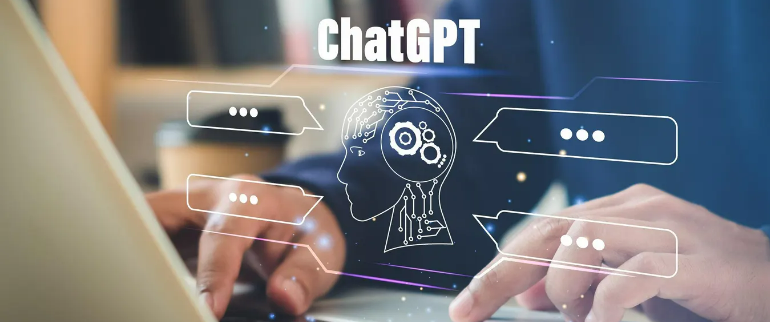The world of accounting is evolving rapidly, driven by advancements in technology that streamline processes and enhance decision-making. One tool that has the potential to significantly transform the accounting industry is ChatGPT. Powered by artificial intelligence, ChatGPT offers capabilities that can not only reduce the time spent on mundane tasks but also elevate the role of accountants to focus on strategic financial insights. Here’s how ChatGPT is poised to revolutionize accounting in five key areas.
1. Automating Data Entry and Reconciliation
One of the most time-consuming tasks in accounting is manual data entry. Whether it’s inputting invoices, receipts, or transaction records, this process often takes up a considerable amount of time and is prone to human error. ChatGPT can automate these tasks by reading and processing financial documents with high accuracy. It can enter data directly into accounting systems, and when discrepancies occur, ChatGPT can quickly identify them, assisting in reconciliation.
By reducing the burden of these repetitive tasks, accountants can focus more on tasks that require human judgment, such as financial analysis and decision-making. The result is a more streamlined workflow, fewer errors, and more accurate financial records.
2. Streamlining Financial Reporting
Producing financial reports, such as income statements, balance sheets, and cash flow analyses, often involves gathering data from multiple sources and ensuring the information is up-to-date. ChatGPT can simplify this process by automatically pulling data from accounting systems and presenting it in a clear, comprehensible manner.
Furthermore, ChatGPT can analyze the financial data and generate real-time insights, helping businesses make informed decisions faster. Instead of waiting days or weeks for month-end reports, decision-makers can access near-instantaneous financial updates, giving them a competitive edge in today’s fast-paced business environment.
3. Assisting with Tax Preparation and Compliance
Navigating the complexities of tax regulations and filing requirements can be challenging for both individuals and businesses. ChatGPT can serve as a valuable tool for tax preparation, ensuring compliance with current regulations by reviewing tax codes, previous filings, and applicable deductions. It can automatically calculate deductions, assist with filling out tax forms, and even generate alerts for potential discrepancies or audit risks.
By reducing the manual effort involved in tax preparation, accountants can shift their focus toward tax planning and strategy. Additionally, ChatGPT can ensure better compliance with evolving tax regulations, reducing the risk of errors and penalties.
4. Providing Financial Insights and Forecasting
Beyond routine tasks, ChatGPT can provide deeper financial insights by analyzing historical data and identifying trends that might not be immediately apparent to human accountants. This can include expense analysis, cash flow patterns, and profitability metrics. By offering data-driven recommendations, ChatGPT enables businesses to make more informed decisions on budgeting, cost-saving measures, and investment opportunities.
Additionally, ChatGPT can assist with financial forecasting. It can create models based on historical performance and current market trends to predict future financial outcomes. These forecasts can be invaluable for long-term planning, helping businesses anticipate challenges and opportunities well in advance.
5. Enhancing Client Communication
For accounting firms, managing client communication is a critical aspect of maintaining strong relationships. ChatGPT can serve as a virtual assistant, responding to common client inquiries such as questions about tax obligations, financial statements, or billing issues. By automating these routine communications, firms can improve response times and deliver more personalized service to clients.
Moreover, ChatGPT can assist in onboarding new clients by guiding them through the necessary paperwork, answering preliminary questions, and ensuring they have all required documentation. This can enhance client satisfaction and help firms scale their operations more efficiently.
Is The Future of Accounting with ChatGPT?
The introduction of ChatGPT into the accounting field represents a significant shift toward more efficient and insightful financial management. By automating routine tasks, generating real-time financial reports, assisting with tax preparation, offering data-driven insights, and enhancing client communication, ChatGPT allows accountants to focus on more value-added activities.
As businesses continue to embrace digital transformation, the role of accountants is evolving from data entry and report generation to strategic financial advisors. Tools like ChatGPT improve operational efficiency and enable accountants to offer deeper insights that drive business growth. The future of accounting is undoubtedly more intelligent and agile, with ChatGPT at the forefront of this transformation.
